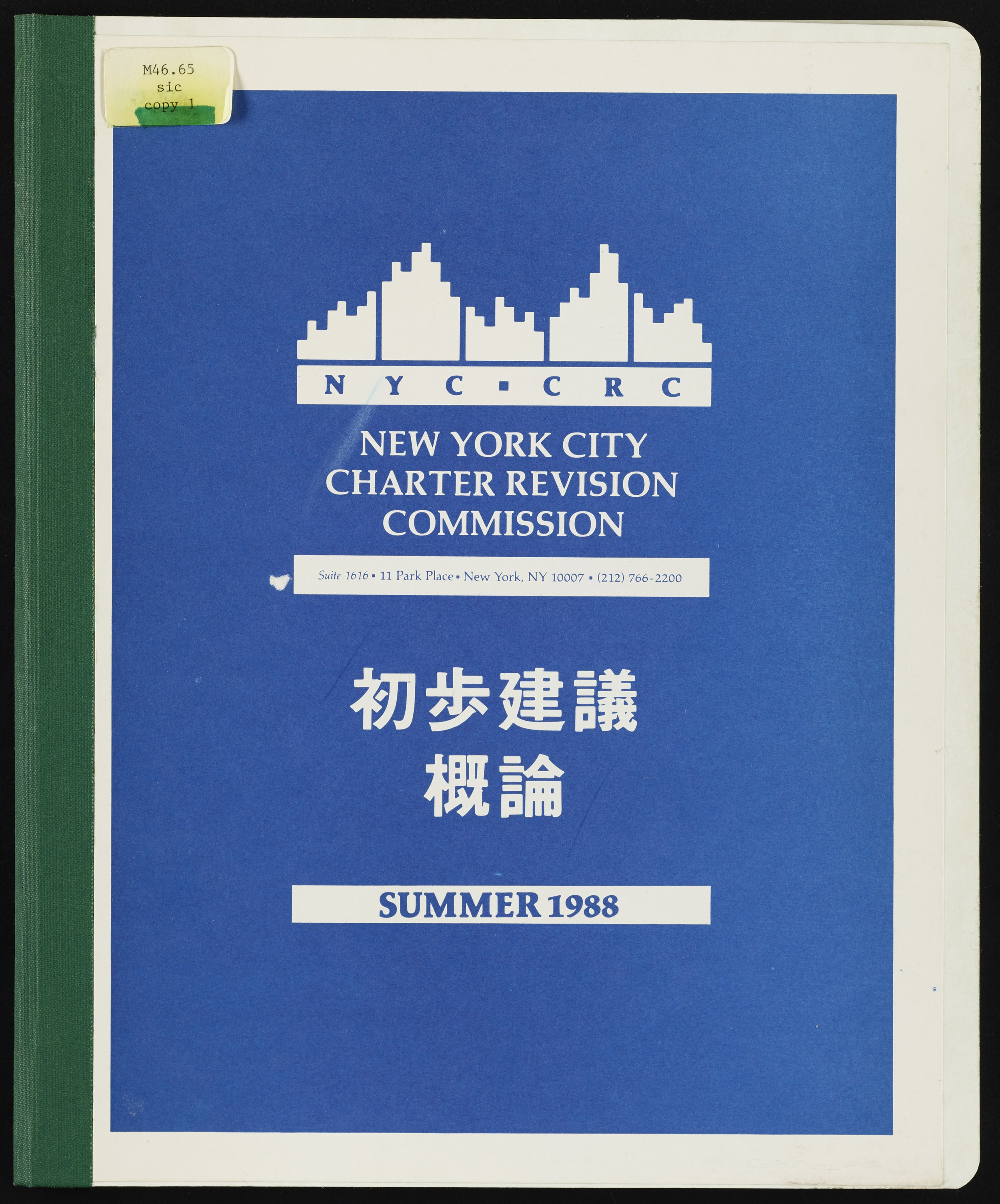This convergence of government scandal and government reorganization is reflected in the deliberations of the charter commission and in the six ballot questions that they submitted to the voters in November, 1988. That February, the commission members still thought they would be remaking all of City government. Nevertheless, they also focused on approaches to ensure fair and open elections.
Archibald Murray, then the head of the Legal Aid Society, stated the case for change at a February 25, 1988 meeting.
“…you started off with the notion that we are working in a democracy, and that, I think, is the critical factor. It seems to me that the whole idea of a legislative body is to get a group of people together who have been selected by the people to represent the people.
And if that is so, one ought to, at every possible turn, afford the people the right and opportunity of deciding who it is that’s going to represent them. And that argues very much against the notion of choosing by appointment. It seems to me perfectly valid to leave the office vacant for a few days, if that’s what it’s going to take, than to take the choice way from the people for the next six months or whatever it’s going to take.”
As the debate continued, various commissioners, including Amy Betanzos and Frank Macchiarola expressed support for filling the vacant posts by the electorate, leading former deputy mayor Nat Leventhal to comment on the disproportionate impact that the appointments had.
“And history tells us that even though you are appointed, once you have the job for however brief a period of time, you have the job, you all of a sudden take on all of the aura of an incumbent and it makes it that much more difficult to have elections truly from the will of the people. So, if it can be done practically, it seems to make a lot of sense.”



